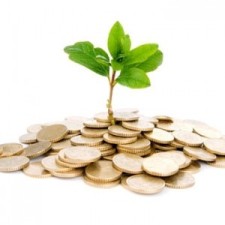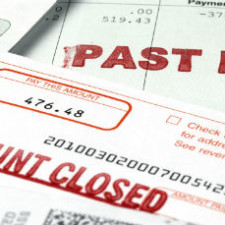Credit Card Debt VS Emergency Fund: Which is the Better Pick?
You might think the answer is to pay off your credit card debt. After all, it’s the bank you’re answerable too. What about your credit score? Wouldn’t that be a bigger problem? True enough, paying off your credit card debt is a wise thing to do. However, is it the wise thing to do?
Why should you go for the emergency fund?
An emergency fund is pretty much self-explanatory—it’s for emergencies.
Unless you’ve found a sure way to avoid unfortunate accidents or well, emergencies in general—surely a lot of people would want to know the secret. Hence, saving for an emergency fund is the better pick of the two. How so?
 http://www.flickr.com/photos/86530412@N02/8893328628/sizes/c/
http://www.flickr.com/photos/86530412@N02/8893328628/sizes/c/
If you’re thinking, “You’re being a pessimist!” You’re being naïve.” This is called reality. The fact remains; things happen. Things you don’t expect, and sometimes, these are things that don’t really fit into your financial plans. It’s like avoiding the death topic. Not one of us are ever really sure we’d even wake up tomorrow. The point is, people eventually die.
The same thing applies to your finances. You’d eventually encounter something that would change the normal flow of things in your life. Something WOULD interrupt your routine, and that particular something often requires you to shell out some money.
If you’ve already got a credit card debt, and you’re faced with the sudden death of a family member, a sickness or injury, a natural disaster, what will you do? You’re going to use your credit card again to make your debt even larger? You’re only going to make matters worse. Hence, if you want to make sure your credit card debt doesn’t expand into infinite proportions, start saving up for that emergency fund.
How do I secure my emergency fund?
It’s like your own personal insurance policy that would save you from whatever financial crisis to come your way. Nevertheless, you have to take certain steps to make sure you don’t waste your emergency fund:
- Think of your credit card debt. That’s right. While you’re saving for your emergency fund, it’s still important to keep in mind your debt with the credit card company. You still HAVE to pay your monthly minimum. The point is, you know the worth of the money you’re saving and how much you’ll need to take care of it. Hence…
- Forget it exists. This just means that you wouldn’t EVER, EVER touch your emergency fund to make unnecessary purchases. Remember, a new gadget, a new pair of shoes, a new watch, a new laptop is NOT an emergency! Resist the temptation, especially if your fund has already reached a significant amount.
- Follow your budget. This is the best way to make sure you align all your financial decisions with your goal to save for an emergency fund. Don’t stray from your plans.
- Set an automatic deduction plan for your salary. To make sure you’re saving no matter what happens, talk to your company or bank to make sure that a certain percentage of your salary is automatically deducted whenever you get it.
How do you know it’s enough?
Word is, your savings should be at least 4-6 month’s worth of salary. Then, you could at least start focusing on paying off your credit card debt. It should be big enough to soften the blow of whatever financial emergency, should one happen to you or anyone in your family.
The reason why an emergency fund is a much better priority than a credit card debt is because you can actually stop and consider a certain amount an accomplishment, and work on other things. In contrast, it could take months and years to actually pay off your credit card debt completely. For as long as you don’t miss on paying the minimum on your credit card debt, you can focus on saving for your emergency fund and breathe a little easier, knowing you’ve got back-up in case something does eventually happen—because it will.






